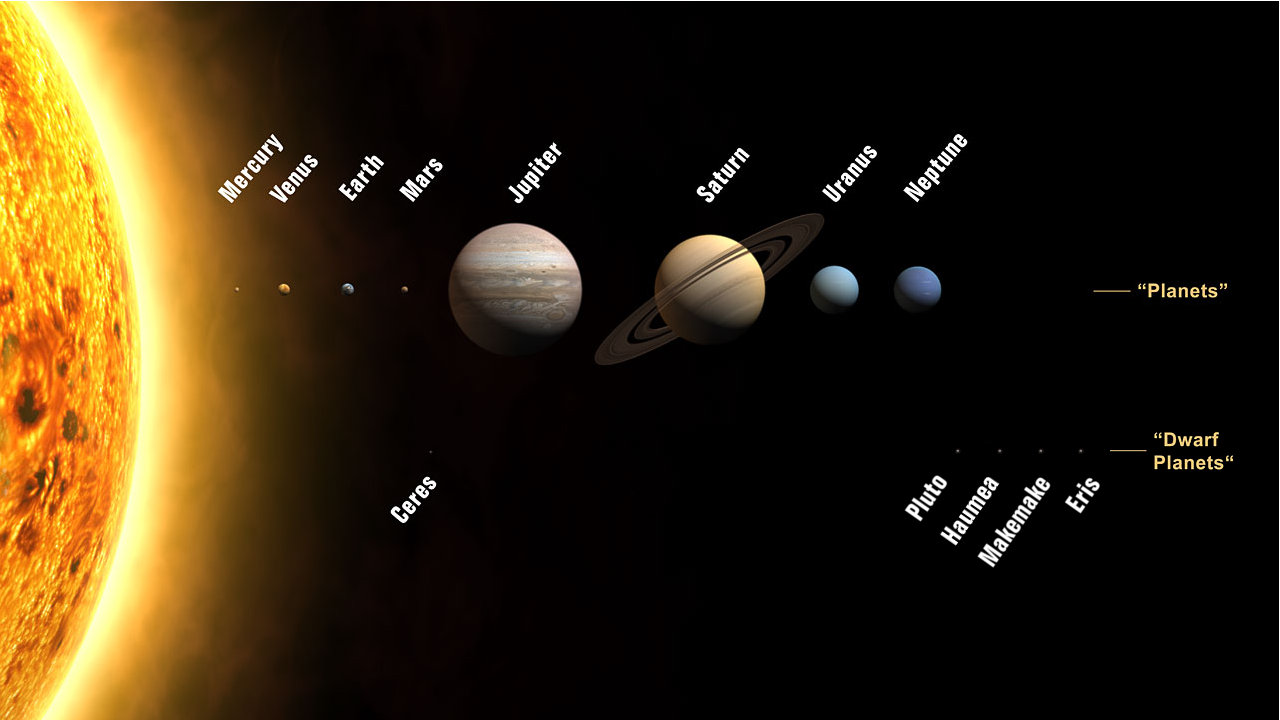There are three basic criteria for planethood, and you've listed two of them. Pluto, Eris, Sedna, Quaoar, and thousands of roundish Kuiper Belt objects and asteroids would be planets by your two terms.Oh for crying out loud... is it almost spherical and in orbit around the sun, as apposed to another body? That definition can exclude both asteroids and satellites, ditching all this hair-splitting.
Fortunately, Pluto and its sisters fail to live up to the third category-- they are not the dominant gravitational body in their neighborhood. Adding in that third criteria cuts out all the Kuiper crap and leaves us with a nice manageable quantity of planets.
Is this the "hasn't cleared their orbit" thing. Because, Earth hasn't cleared its orbit either.
I don't see why they didn't make Pluto the "smallest" size for a planet, sure that'd mean other KPOs have to be "planets" as well but who says solar-systems have to have a certain number of planets?
But I think Pluto being used for a new "class" of planets is neat for Trans-neptunian objects. So we have "rocky/terrestrial planets". "gas giant planets" and then we have the "KBOs" or "Plutonian" planets, or whatever the Trans-Neptunian objects are.

